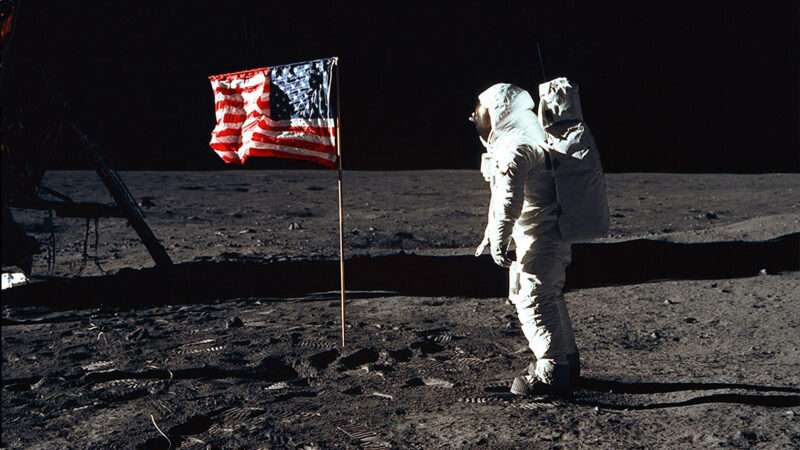
We were supposed to go back to the moon last week. We were also supposed to go back five weeks before that in mid-September, and six months before that. We were maybe supposed to go back to the moon during the George W. Bush administration. And we were definitely supposed to go back to the moon shortly after what ended up being the final Apollo mission.
Yet no one has been to the moon for 50 years.
That so much time has elapsed since mankind's last lunar foray is somehow shocking, even to those of us who are too young to remember the moon landings. Those few round trips to plant flags, gather rocks, take photos, and play golf are so central to our sense of ourselves as a nation—and as a species—that it's jarring to contemplate what it means that so much time has passed without a repeat performance.
The last time a group of astronauts was preparing for a manned moon mission, Bob Barker was making his Price Is Right debut. The first pocket scientific calculator was appearing in stores. Pong was newly released for Atari. Comedian George Carlin had just been arrested for "Seven Words You Can Never Say On Television."
When Apollo 17 returned to Earth on December 19, 1972—after a 12-day mission in which Gene Cernan and Harrison Schmitt became the last two men to walk on the lunar surface—no one involved thought it was the end of an era. Public opinion was turning against government space spending at the time, but popular literature, music, and movies were full of visions of lunar colonies and more. The final frontier remained very much alive in the popular imagination, and humanity's conquest of it felt inevitable.
Yet five decades have slipped by without a single new footprint in the regolith. If we can put a man on the moon, why can't we put a man on the moon? Conventional wisdom holds that the moon race was little more than Cold War peacocking, with both sides demonstrating their ability to burn resources and genius on a project with no immediate practical payoff—other than perhaps vaguely hedging against the other side weaponizing space. This, in turn, led to a first-past-the-post mindset and, ultimately, a dead end. The moon was a prize. Like a high school boy trying to win a stuffed toy at a carnival game, NASA was willing to do almost anything to win it. Once in hand, it lost its fascination. Mankind managed a giant leap, and we neglected the many small steps that should have come next.
Reason has been publishing special features devoted to space travel since shortly after our own founding in 1968, the same year as the first crewed Apollo mission. What is striking about the tone of Reason's space coverage over the years is how hard it strives to be measured, realistic, even critical—and how consistently it fails to maintain that cynical distance in favor of optimism and hope.
The question Reason has long grappled with is not whether to return to the moon (though that is an interesting debate as well), but how to reconceive space travel and exploration as an emerging market and a chance to discover new attributes and aptitudes of our clever, canny species.
Nationalism isn't an ideal source of competitive spirit—too often such contests end in shootouts or embargoes—but it is what got us to the moon in the first place. As this issue goes to press, NASA's long-delayed Artemis is poised for takeoff, the beginning of the most viable push to return to the moon in my lifetime. But the world has changed since the days of Apollo, and in many ways that launch is inconsequential. Even if it fails, there are a handful of serious private competitors working on their own viable, sustainable visions. Perhaps one of them will sell me a ticket.
The post It's Been 50 Years Since Humans Walked on the Moon appeared first on Reason.com.







